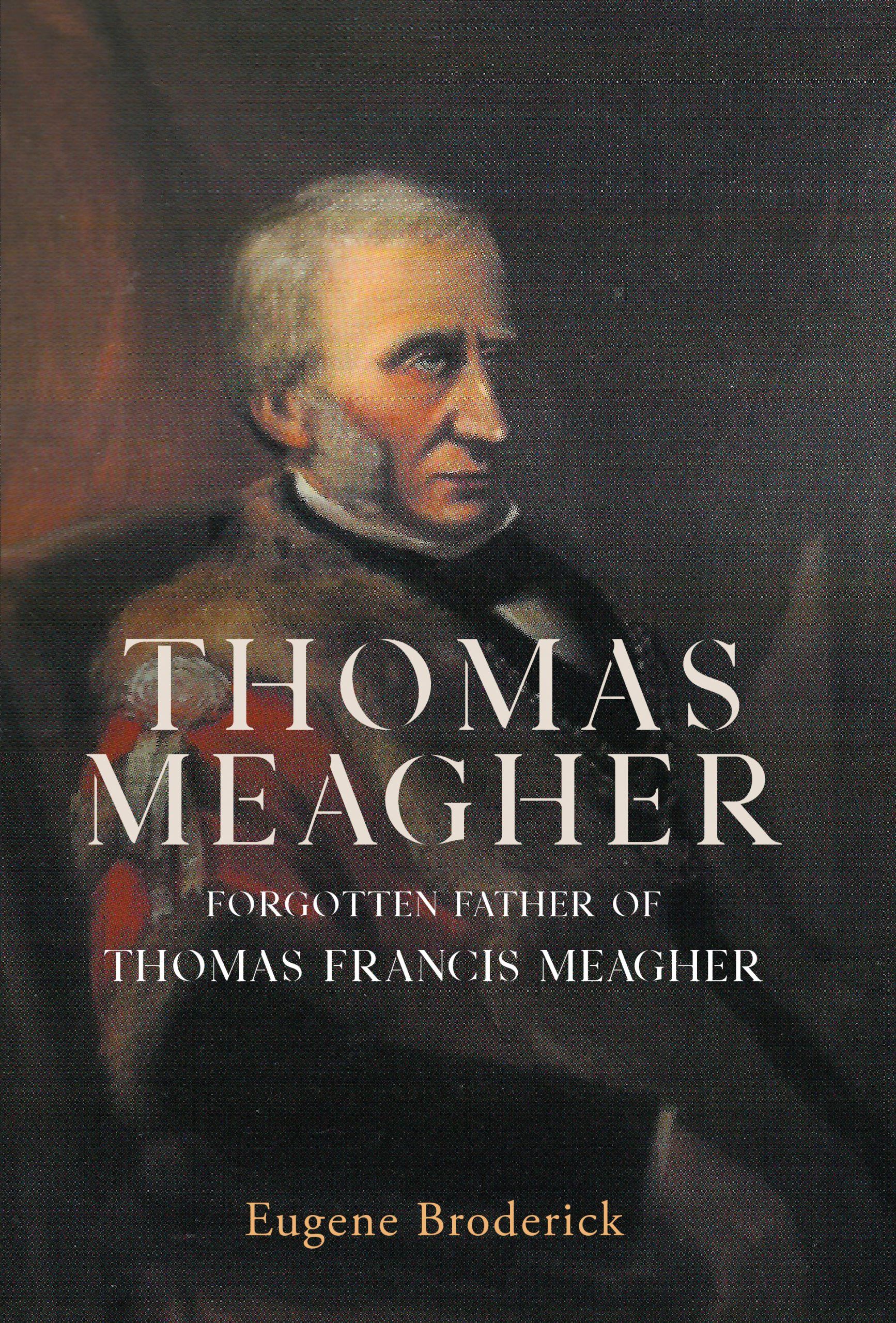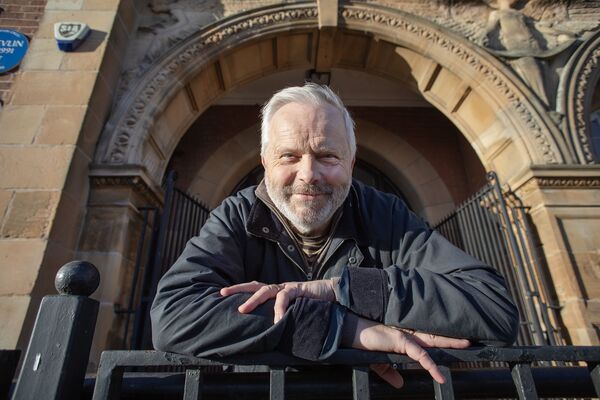Thomas Meagher, Forgotten Father of Thomas Francis Meagher (Irish Academic Press)
THE first thing that strikes you when lifting up this biography of Thomas Meagher is the title. The author feels the need to explain his subject by referencing him to his more illustrious son, the charismatic Young Ireland leader whose star shone and fell over a relatively short period in the politically charged 1840s in Ireland, but whose name lives on today.
The father, on the other hand, was a political activist for more than 40 years. An ardent O’Connellite he helped shape political nationalism in the decades leading up to the Famine, both in his adopted city of Waterford and nationally.
Eugene Broderick’s excellent biography on Meagher not only gives us an insight into the man dedicated to the cause of his beleaguered country and people, but also explores the relationship with his son, whose own exploits in the cause of Irish freedom would see him emerge from his father’s shadow and leave the older Meagher forever confined to his son’s.
Just received a copy of Eugene Broderick’s ‘Thomas Meagher: the forgotten father of Thomas Francis Meagher, for which I had the honour of contributing a Foreword. It explores the life of a significant Irish political figure whose reputation has been eclipsed by his son’s. pic.twitter.com/ie8YxGhf6L
— Daniel Mulhall (@DanMulhall) August 6, 2022
We also get to sit in on public meetings and read newspaper excerpts of speeches which paint a vivid picture of the political, economic and social upheavals that were prevalent in the formative years of the forced Union with Britain. Indeed it is these reports from various Waterford newspapers from the time that provide us with Meagher’s spoken word, his beliefs and what appears to be a bondless energy in politically fraught times.
Thomas Meagher settled in Waterford from Newfoundland as a successful merchant. Strong bonds between Waterford and Newfoundland over many generations made this an easy move for the young ambitious man, but he brought with him a strong Catholic faith and a strong dislike for inequality which he and his fellow Irish community experienced and was a witness to on this northern outpost of the British Empire.
Agitation and O’Connell’s manoeuvrings with the Whig government brought in municipal reform in the 1842 – against Protestant resistance – many of whom saw the corporations’ role as “the maintenance and promotion of the English or what is more properly termed the Protestant interest in Ireland”.
In Waterford that same discrimination could be seen in that the overwhelmingly Catholic town and county was in the hands of an Anglican ascendancy and although Meagher formed part of the growing Catholic middle-classes, his journey up the social ladder was stunted due his faith. Thus the story begins of a frustrated but determined group of individuals who set out to politically break down political barriers for themselves and their co-religionists, and especially the Catholic middle-class.
Successful campaigns such as Catholic Emancipation is followed by frustration that this political breakthrough didn’t deliver all that its advocates believed it would. Through to the campaign for the Repeal of the Act of Union, again with O’Connell at the vanguard – but with Meagher organising in Waterford where he was becoming an increasingly important political figure – we see wins being ironed out by losses.
In 1833 with a population of 7.7 million people a report found that 30 per cent of the Irish population were in distress during 30 weeks of the year. Waterford was one of the main centres of political agitation in the country. Agitation and O’Connell’s manoeuvrings with the Whig government brought in municipal reform in the 1842 – against Protestant resistance – many of whom saw the corporations’ role as “the maintenance and promotion of the English or what is more properly termed the Protestant interest in Ireland”.
The elections which followed brought about a municipal revolution with the Catholic middle-class gaining control of all corporations, except those in Belfast and Derry. Meagher was at the centre of this and he was duly elected the first Catholic mayor of Waterford since the seventeenth century.
With the wind of change behind him, Meagher put all his energies into Repeal of the Act of Union along with the Liberator Daniel O’Connell, but it was this demand – that was greeted by Monster Meetings across the country – that Prime Minister Peel and the British government stood steadfast against. Repeal did not mean breaking the link fully with Britain, the demand was for an Irish parliament in Dublin. Meagher argued: “The people, in thousands, he might say millions, are in distress and in such distress as was never witnessed before… after nearly 50 years of united British legislation… the poor (are) dying of want on our streets.” Indeed Repealers still raised toasts to Queen Victoria during civic meetings, but the author argues that this was not uncommon for nationalists as all the people of Europe knew at that time were monarchies.
The Repeal movement aligned itself with the temperance movement which was having significant success in pre-Famine Ireland. Meagher, himself, was also a philanthropist who established and administered several charities for women and the poor and destitute of Waterford.
But it is his relationship with his son – going back to the title of the book – that is an intriguing aside, once the young Meagher begins to make a name for himself in his own right. A loyal O’Connellite in the early 1840s where he was a confidante of his father, he would find a radical voice with Young Ireland, who were “one of the most talented group of young men ever to combine in Irish politics”.
That would end in Thomas Francis Meagher being tried for treason and transportation to Van Diemen’s Land with Ireland in the throes of famine. The elder Meagher, who was a fervent constitutionalist, would go on to become MP for Waterford.
Meagher may have faded into political obscurity, but his story is one of victory, defeat and family pain, during a period of great social change as well as stagnation. Never a leader, he was a loyal foot soldier who worked diligently, throwing all his talents against what must have appeared at times to be an impenetrable British foe.
He died an old man outliving his more famous son by several years.








